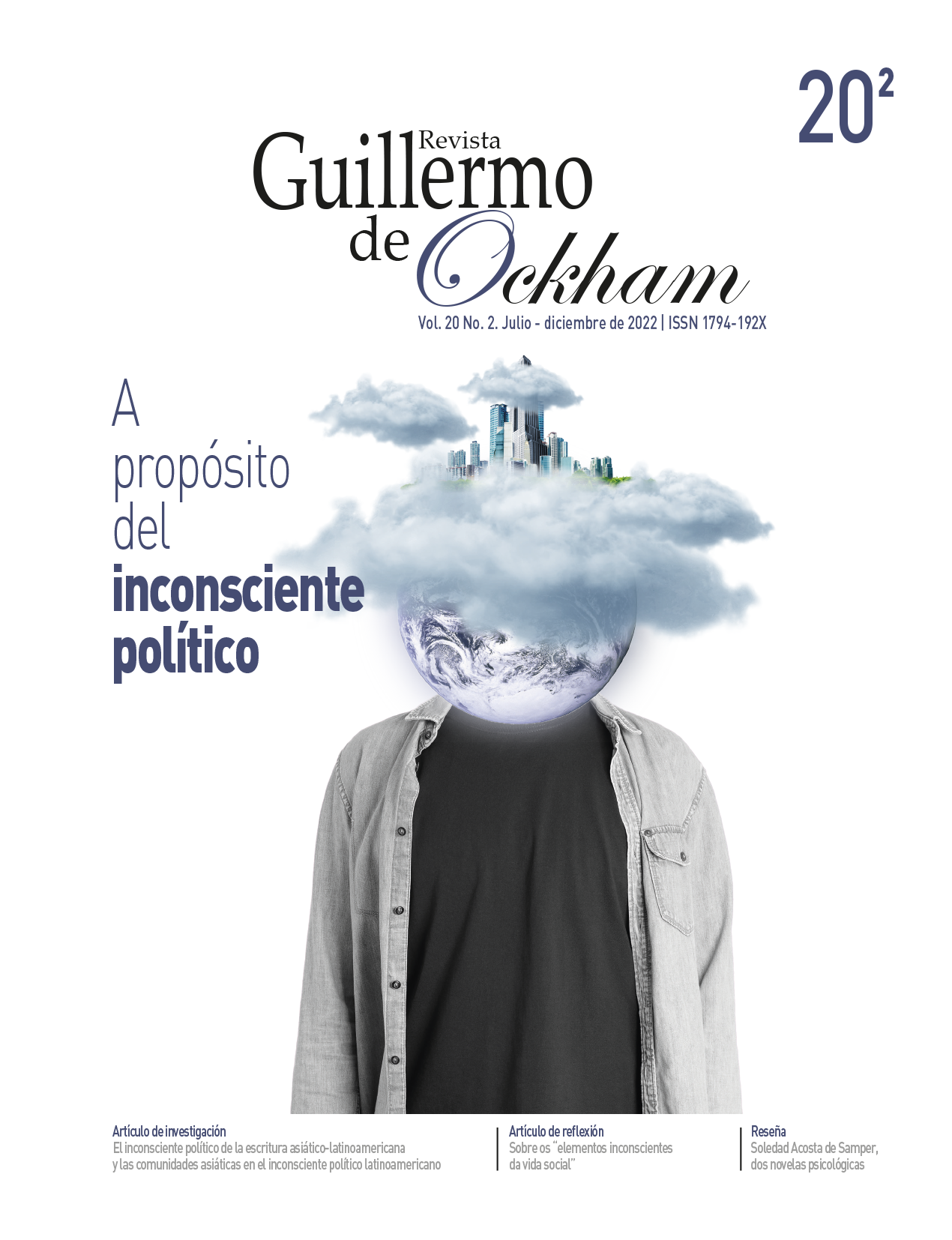The Revista Guillermo de Ockham provides an immediate and open access to its content, based on the principle of offering the public a free access to investigations to provide a global interchange of knowledge.
Unless otherwise established, the contents of this journal has a license with Creative Commons Attribution-NonCommercial-NoDerivatives 4.0 International (CC BY-NC-ND 4.0) http://creativecommons.org/licenses/by-nc-nd/4.0/
- Attribution: You must give appropriate credit, provide a link to the license, and indicate if changes were made. You may do so in any reasonable manner, but not in any way that suggests the licensor endorses you or your use.
- NonCommercial: You may not use the material for commercial purposes.
- NoDerivatives: If you remix, transform, or build upon the material, you may not distribute the modified material.
- No additional restrictions: You may not apply legal terms or technological measures that legally restrict others from doing anything the license permits.
Abstract
The libidinal tensions described by Freud are not simply characteristic of the subject, but are part of interpersonal politics (family) of the struggle for power. This is the reason why Etienne Balibar points out that, in his description of the crowd formation and the genesis of the superego, Freud does not provide a "psychoanalysis of politics" (an explanation of the political dynamics of the crowds, through processes which are themselves apolitical), but their opposite: the politics of psychoanalysis (the explanation of the emergence of the triadic structure of the Ego-Id-Superego, through family "political" power struggles). This is what Marx does in A Critique of Political Economy: he brings out his unconscious, and that is why he calls the object of his critique "political economy."
Keywords:
References
Benjamin, Walter (1996). Capitalism as religion. Trad. de Rodney Livingstone. Selected writings 1913-1926, editado por Michael Jennings y Marcus Bullock. Harvard University Press, pp. 288-291.
Freud, Sigmund (1976). The Interpretation of Dreams. Harmondsworth: Penguin Books.
Johnston, Adrian (2022). The Plumbing of Political Economy: Marxism and Psychoanalysis Down the Toilet. En: Psychoanalysis and the Mind-Body Problem [ed. Jon Mills]. New York: Routledge, (en prensa).
Lacan, Jacques (2007). The Other Side of Psychoanalysis. Book XVII. New York: W.W. Norton and Company.
Marx, Karl (1847). The poverty of Philosophy. París.
Marx, Karl (1970). A Contribution to the Critique of Political Economy. New York: International Publishers.
Marx, Karl (1863). Theories of Surplus-Value. Moscow: Progress Publishers
Marx, Karl & Friedrich Engels (1969). Selected Works. Volume 1. Moscow: Progress Publishers.
Pippin, Robert (2020). The Return of Metaphysics: Hegel vs Kant. Tomado de https://iai.tv/articles/the-return-of-metaphysics-hegel-vs-kant-auid-2032?_auid=2020

 Perfil Google Scholar
Perfil Google Scholar































